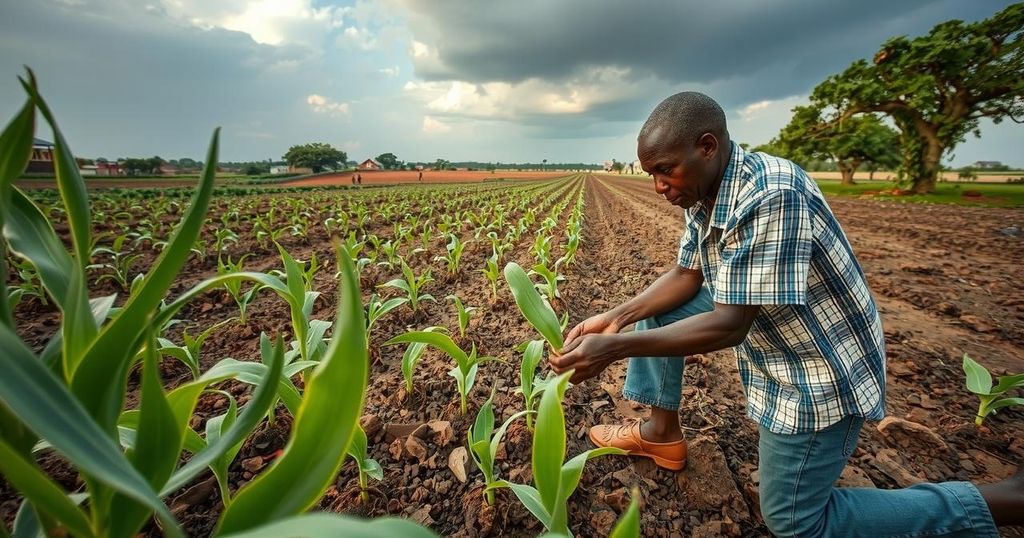Transforming Waste into Wealth: Zimbabwe Farmers Embrace Maggot Farming

Farmers in Nyangambe, Zimbabwe, are transitioning to maggot farming to address food shortages caused by drought. Initially resistant, individuals like Mari Choumumba now recognize the economic benefits, using black soldier fly maggots as a protein-rich feed for chickens. This practice reduces farming costs and contributes to sustainable waste management, signaling a shift toward agricultural resilience amid ongoing climate challenges.
In Nyangambe, Zimbabwe, farmers are adopting the unconventional practice of maggot farming as a response to severe drought and food insecurity. Initially met with skepticism, the approach is gaining traction as farmers, like Mari Choumumba, discover the economic benefits of using black soldier fly maggots as a valuable protein source for poultry. This method not only reduces feed costs by 40% but also utilizes organic waste, thereby contributing to waste management and environmental sustainability. As more farmers recognize the nutritional and financial advantages, including a transformation in their livelihood, maggot farming emerges as a viable solution for agricultural resilience amid climate challenges.
The contextual backdrop of maggot farming in Zimbabwe is shaped by a series of environmental challenges, including recurrent droughts that devastate traditional crops such as corn. Coupled with public health concerns stemming from cholera outbreaks attributed to poor sanitation, the notion of breeding maggots initially frightened many farmers. However, guidance from agricultural experts highlighted the nutritional benefits of black soldier fly maggots, which offer a sustainable alternative for animal feed and contribute to waste recycling. Over time, community education and successful pilot programs have enabled a significant shift in perspective, thus enabling farmers to improve food security and their economic standing.
In conclusion, the transition to maggot farming within Zimbabwean agriculture exemplifies innovation in response to existential challenges posed by climate change and food insecurity. As farmers embrace this eco-friendly approach, they not only reduce production costs and enhance livestock nutrition but also play a crucial role in waste management and environmental conservation. The success stories of farmers like Mari Choumumba signify a hopeful transformation in rural agricultural practices, providing a roadmap for resilience in the face of adversity.
Original Source: apnews.com








